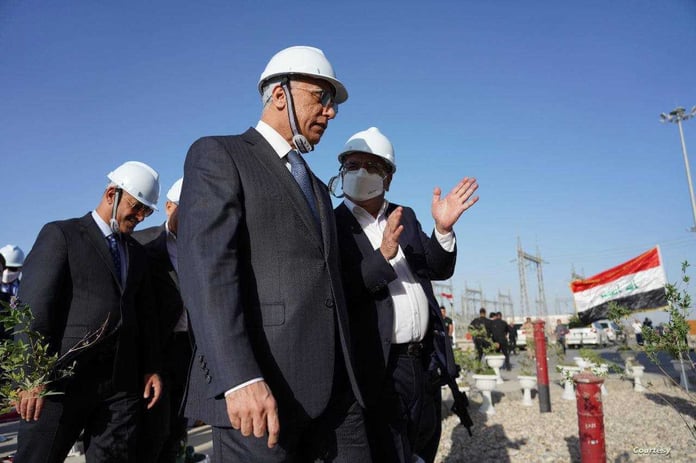
Angry demonstrators surrounded the convoy of the Iraqi Prime Minister, Mustafa Al-Kazemi, on Saturday, as he inaugurated a project in the southern province of Dhi Qar, local sources told The Eastern Herald correspondent.
The sources said that angry protesters raised slogans and chants against the prime minister’s visit, and demanded that the killers of the demonstrators be held accountable and that the kidnappers of activist Sajjad al-Iraqi be revealed during Al-Kazemi’s opening of a bridge in the oil city of Nasiriyah.
The sources indicated that Al-Kazemi had to leave the site urgently.
ثوار الناصرية يطردون الكاظمي pic.twitter.com/QqNncq3Uig
— عباس الناصري (@abbasnasree) June 12, 2021
According to the reporter, the protesters threw stones at Al-Kazemi’s convoy during the opening of the Nasiriyah concrete bridge, and the protesters chanted against the government, which they described as partisan, rejecting his presence in Nasiriyah.
Al-Kazemi had arrived in Nasiriyah early Saturday morning, to inaugurate a number of vital projects, including the Nasiriyah Hospital, known locally as the Turkish Hospital, the Nasiriyah concrete bridge after its rehabilitation, and the Nasiriyah composite station, in addition to laying the foundation stone for the Nasiriyah Civil Airport.
On the sidelines of the visit, Al-Kazemi confirmed that the security and judicial agencies are serious about working to find the killers of the activists.
رئيس مجلس الوزراء السيد مصطفى الكاظمي يزور، اليوم السبت، عائلة الشهيد انس مالك الذي استشهد متاثرا بجراحه بعد اصابته خلال التظاهرات في مدينة الناصرية العام الماضي. pic.twitter.com/7bxiX4HdSE
— المكتب الإعلامي لرئيس الوزراء 🇮🇶 (@IraqiPMO) June 12, 2021
The Prime Minister’s Media Office stated, in a statement, that Al-Kazemi visited the family of Anas Malik, who died of his wounds after being wounded during the demonstrations in Nasiriyah last year.
Al-Kazemi confirmed, according to the statement, that “the security and judicial services are serious about working to reach the killers of activists, and we were able earlier to arrest the killers of journalist Ahmed Abdul Samad, death squads in Basra and a number of killers of demonstrators.”
Al-Kazemi pointed out that “Nasiriyah has suffered from marginalization for decades, and its people are suffering today due to the lack of services and wrong policies.”













